#acute renal failure
Text
Acute Renal Failure - Blood Picture
Elevation of urea, creatinine, uric acid & phosphorus are seen in ARF. Na+ is low due to water retention & intracellular shift, K+ rises from injudicious dietary intake and release from cells. Ca+ is usually low.
0 notes
Text
A patient undergoing a kidney transplant needs to regularly take certain medicines as recommended by the doctor. This is essential to ensure that the new kidney is functioning properly. While some medicines need to be taken life-long, others may be required for a specific period of time. These medicines include:
Immunosuppressants or anti-rejection drugs: These medicines need to be taken life-long to prevent the immune system of the body from attacking the new kidney.
Antibiotics or antiviral medicines: These medicines may be recommended for a specific period of time to prevent bacterial and viral infections after kidney transplant.
Symptomatic medications: These medicines may be given to relieve the symptoms associated with a kidney transplant, such as stomach ulcers, diarrhea, constipation, pain, and nutritional deficiencies.
There are many hospitals in Mumbai where kidney Transplant is done with great success.
#kidney transplant#kidney failure#kidney cancer#kidney stone#kidney#kidney disease#acute renal failure#renal failure
0 notes
Link
When your kidney loses its functionality rapidly, you are said to suffer from acute renal failure. It is usually known as acute kidney failure. Unlike chronic kidney failure, in this type of renal failure, the degradation of your kidney occurs within a span ranging from a few days to a week. The secondary difference between chronic kidney failure and acute renal failure is that the latter, in certain favorable conditions, can be temporary.
#Acute Renal Failure#Kidney Failure#Kidney Disease#kidney specialist#nephrologist in Ahmedabad#kidney transplant
0 notes
Photo

The 3 Phases of Acute Renal Failure Nurses Should Know for the NCLEX
Acute renal failure (ARF) is the rapid cessation of the kidneys' ability to filter waste from the blood. This abrupt loss of function may be caused by an accident, a trauma, an infection, or difficulties during surgery. People who already have other health issues are typically affected. The goal of ARF treatment is to restore renal function and stop the accumulation of waste in the body. The kidneys can function normally if the underlying sickness or cause is treated.
0 notes
Text
sorry no i can’t come into work today yeah didn’t sleep at all again. yeah no i was kissing my darling evil baby cat over and over again on her stupid little head right between her tiny triangle ears. very important business
#eva.txt#i’m just looking at her and going oh i love you i love you i love you#squid runs away if i try to kiss her more than once so i must kiss edel twice as many times to make up for it#my coworkers cat has been very very ill so it’s making me cling a bit harder to mine atm#he’s doing better than he was but he might come in tmw to rerun liver + fructosamine +/- monitoring bc he’s not quite stable yet#acute pancreatitis + ketoacidosis + fatty liver dz + early renal failure is not great to get all at once it turns out#fuckin cats man
1 note
·
View note
Text
Cutting Edge Methods for Successful Kidney Cyst Therapy
Kidney cysts are fluid-filled sacs on or within the kidneys, often leading to concerns about kidney function and overall health. This article explores various aspects of kidney cyst treatment, focusing on homeopathic remedies for managing creatinine levels, acute kidney injury, and chronic kidney disease.
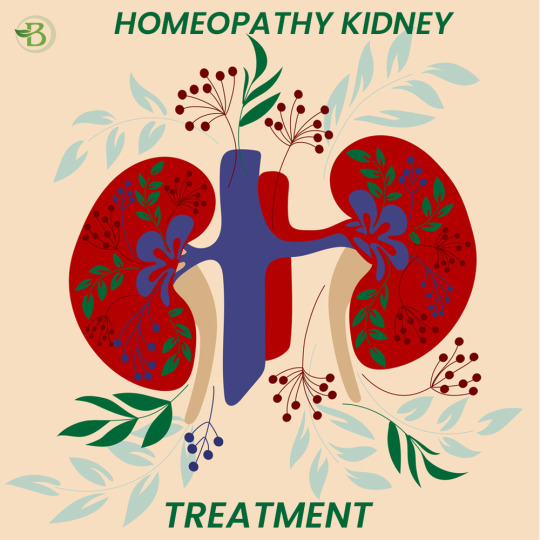
Understanding Kidney Cysts:
Kidney cysts are typically noncancerous and may not always cause noticeable symptoms. However, they can grow over time, potentially leading to complications such as infection, bleeding, or interference with kidney function. Treatment options for kidney cysts depend on factors like size, symptoms, and the underlying cause.
Conventional Approaches to Kidney Cyst Treatment:
Monitoring and Observation:
Small, simple kidney cysts may require no treatment but regular monitoring to track changes.
Pain Management:
Pain associated with kidney cysts can be alleviated with over-the-counter pain relievers or prescribed medications.
Aspiration:
Sometimes, a healthcare professional may drain fluid from the cyst using a needle, reducing its size and relieving symptoms.
Homeopathic Approach to Kidney Treatment:
Homeopathy offers a comprehensive and personalised approach to treating kidney cysts, focusing on stimulating the body's natural healing mechanisms. Additionally, homeopathic remedies are gaining recognition for their potential to manage creatinine levels and address acute kidney injury and chronic kidney disease.
Best Homeopathic Medicine for Creatinine:
The best homeopathic medicine for creatinine is beneficial in managing elevated creatinine levels. However, it's crucial to consult a qualified homeopathic practitioner for personalised recommendations.
Homeopathy for Kidney Treatment:
Homeopathic remedies for kidney cysts are chosen based on the individual's symptoms and constitution.
Acute Kidney Injury Treatment with Homeopathy:
Homeopathic remedies may be considered for acute kidney injury treatment, addressing symptoms like swelling, pain, and impaired kidney function.
Homeopathic Management of Chronic Kidney Disease:
Constitutional homeopathy kidney treatment, considering the person's overall health and unique symptoms, may help slow the progression of chronic kidney disease.
Conclusion:
In conclusion, kidney cyst treatment involves a multifaceted approach, incorporating conventional medical interventions and complementary therapies like homeopathy. The choice between conventional and homeopathic kidney treatment may depend on the severity of symptoms, individual preferences, and healthcare professionals' guidance. For managing creatinine levels and addressing kidney disorders, a holistic perspective that combines conventional and homeopathic approaches may offer comprehensive care for those dealing with kidney cysts, acute kidney injury, or chronic kidney disease. Always consult qualified healthcare professionals and homeopathic practitioners for personalised advice and treatment plans.
#Kidney treatment by homeopathy#homeopathic medicine for renal cyst#homeopathic remedy for kidney infection#kidney cyst treatment#homeopathy kidney treatment#acute kidney injury treatment#Homeopathic treatment for kidney failure#Homeopathic medicine for high creatinine#Homeopathic medicine for kidney failure#Chronic Kidney Disease#Homeopathic Medicine for Renal Cyst
0 notes
Photo
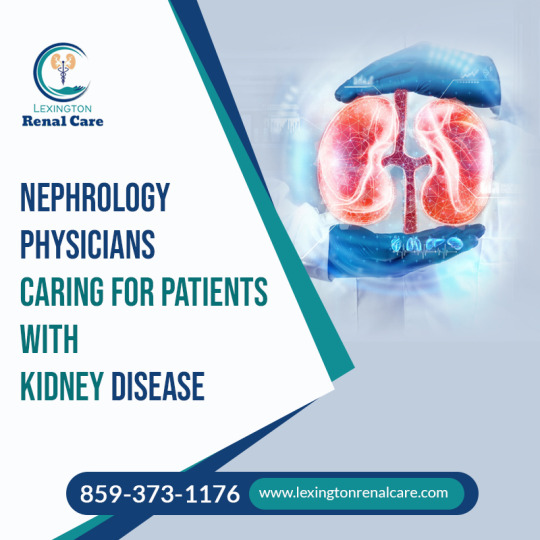
Nephrology is the subspecialty of internal medicine that focuses on the diagnosis and treatment of diseases of the kidney. Lexington Renal Care Physicians Services in Kentucky We provide services that help you with the prevention and treatment of kidney disease.
#Hypertension#Proteinuria and Hematuria#Diabetic nephropathy#kidney disease#Glomerular diseases#Acute and chronic renal failure#Inherited renal diseases#polycystic kidney disease#Evaluation#management of kidney transplant#recipients and donors#Disorders of fluid#electrolyte and acid-base#Nephrolithiasis#kidney stones#disorders of calcium#parathyroid hormone#Osteoporosis#metabolic bone disease#dialysis#In-center dialysis#peritoneal dialysis#home hemodialysis#nocturnal hemodialysis#Managing anemia#chronic kidney disease
0 notes
Text
Can you trust AI Answers about your health?
During the summer of 2020, when the entire world was focused on the pandemic, getting treatment for other health issues became a challenge.
I started experiencing a lot of back pain, but I shrugged it off as an injury and took Advil to cope.
A week later, I thought I had food poisoning.
I tried an at-home service where they pumped me full of IV fluids.
I went to urgent care. They sent me to get scans. I paid hundreds of dollars out of pocket to get them quickly.
The imaging place never sent the scans to the urgent care.
A day later, I had the worst chills. It was July, in Phoenix. Most likely 100 F. I went outside and was still freezing.
At that point, I was taken to the ER. I ended up in the ICU in one of those rooms they zipped up in plastic.
While most of the focus was on COVID, I had something else: a large kidney stone. The kind that doesn’t pass on its own.
I was in septic shock and acute renal failure according to discharge papers.
The hospital stay itself wasn’t too long, but the treatment with specialists took three months to complete.
Surgeries during COVID were extra special because if you tested positive, your surgery was delayed.
Two years later, in 2022, I ended up in the same hospital for the same reason.
And now, I’m a few days into aggressive antibiotic treatment for my kidneys, yet again. Wondering if I make it to the next followup or have to Lyft off to the ER.
So what does this have to do with Google AI Answers?
In 2020 and 2022, I spent a lot of time perusing Google Search results on kidney stones.
Now, I get AI Answers above at the top of SERPs (search engine results pages).
This wouldn’t be a bad thing if one could trust the AI to accurately summarize its sources.
That’s the big if.
In the first screenshot, you’ll find an AI Answer from Google Search results for the phrase how to pass kidney stone.
The first mistake involved an error with paraphrasing a source with legitimate information.
Because I can assure you after four years of seeing urology specialists, no one has ever suggested drinking two quarts or liters of urine.
The basil leaves suggestion, on the other hand, is suspect. I’ve never come across that as a suggestion. It would have stood out, because I have a lot of basil growing around the garden.
I don’t even remember that website from my previous Google searches. I had to check Wikipedia and other sources to find out what the company even was.
Much like the search quality raters and AI Answer checkers do...
In the second screenshot, Microsoft Bing with Copilot offered ads for supplements and advice from five sources, two of which are the MSN Health Hub.
The hub includes a section where you can Ask a health professional questions.
In the third screenshot, ChatGPT using GPT-4 with browsing offered a concise response based on its training data, but claimed not to have access to external sources.
In the fourth screenshot, Perplexity provided the best AI Answer with 19 sources I recognized from my previous research into this health issue.
Moral of the story:
You can’t trust generative AI with your money or your life issues.
But if you do, start with the right AI Answer engine. One that cites sources you trust and doesn’t suggest drinking your own pee.
Think of Perplexity as a better starting point for more in-depth research that you can discuss during your next doctor’s visit.
Not as a definitive answer.
Follow @kristileilani on X for more on AI news, trends, and tools.
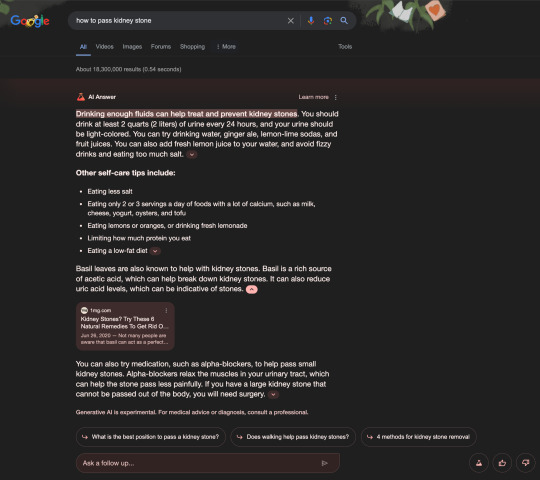
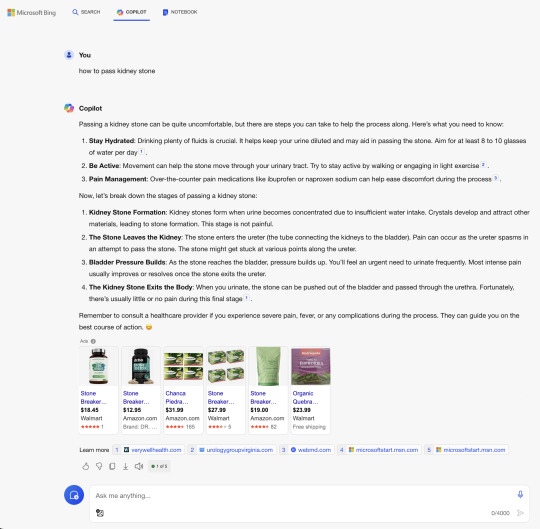
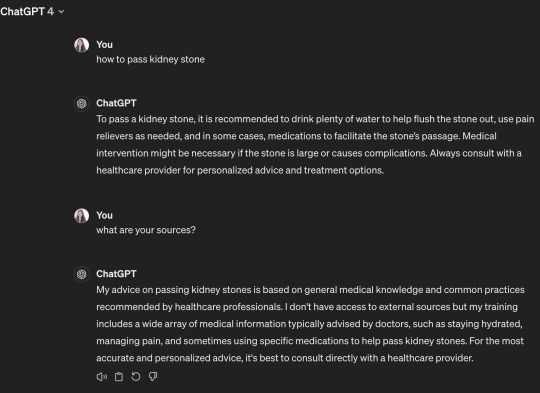
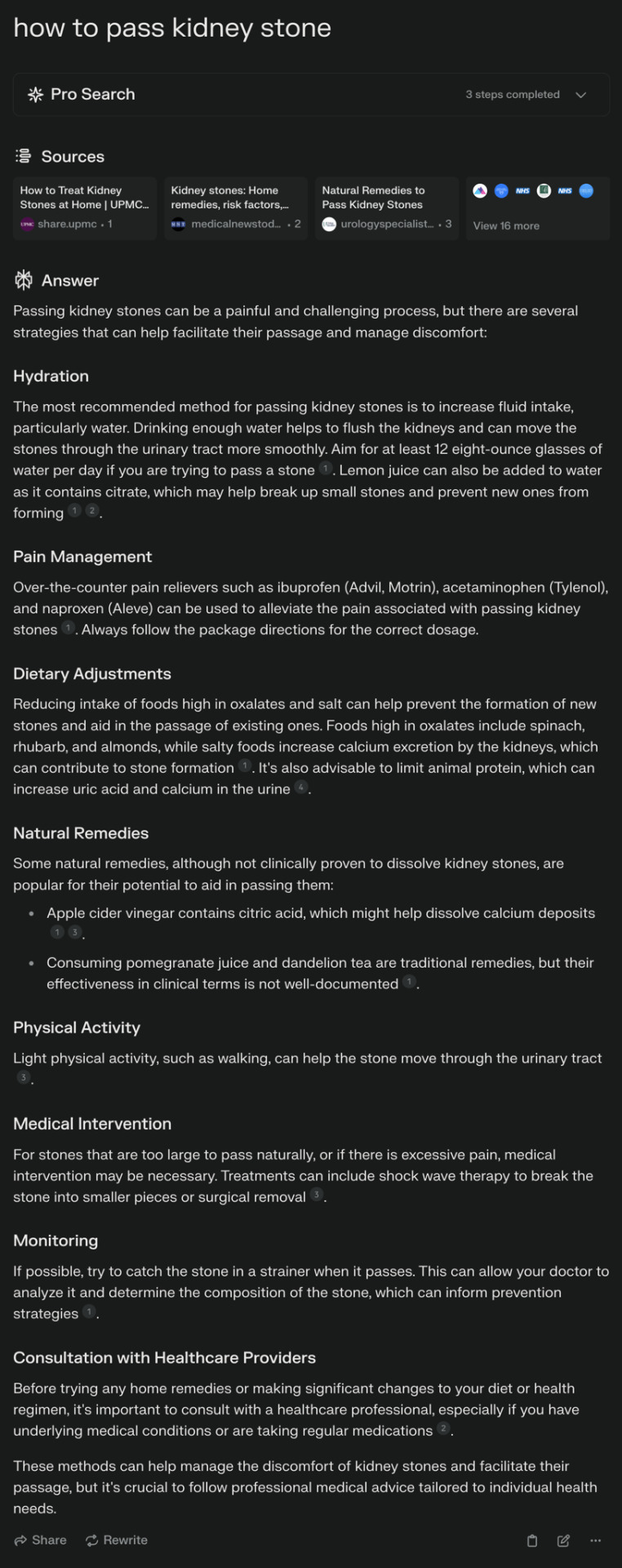
34 notes
·
View notes
Text
Introducing the top ten stories they chose not to tell you this week.
The Vigilant Fox
Aug 25, 2024
#10 - Data analyst reveals where the COVID vaccine deaths are hiding.
The government is oddly silent on 155K excess deaths from a single cause since late 2020.
The condition is not myocarditis. It's acute kidney injury (AKI), a serious condition where the kidneys suddenly stop working properly.
But what's causing all the acute kidney injuries? According to John Beaudoin, it's primarily two things:
1. The deadly COVID hospital protocols (Remdesivir).
2. The COVID-19 injections.
Beaudoin’s data shows acute kidney injury (AKI) deaths surged to 200% of normal levels in 2021.
AKI deaths continued to rise in 2022, hitting a staggering 300% above normal, “while COVID-19 inversely decreased to negligible incidence rates.”
Even after Biden declared the COVID emergency over, excess deaths from AKI remained disturbingly high in 2023.
Beaudoin’s data gets a chilling confirmation from Ed Dowd, who estimates 153K excess deaths nationwide from acute kidney injury alone over the last few years.
“There are more life years lost to acute renal failure alone than COVID, than polio, than smallpox ... than anything in the past 100 years in the United States, except for World War II. It's the biggest killer, and yet the government's not talking about it,” Beaudoin lamented.
(Watch our exclusive interview with John Beaudoin)
SEE MORE REVEALING STORIES BELOW:
#9 - RFK Jr. endorses Trump and delivers a historic speech for the ages.
#8 - CNN anchor admits Kennedy’s endorsement is “huge” and “everything.”
#7 - Trump masterfully shuts down reporter accusing him of campaigning in town “associated with white supremacy.”
While you’re here, don’t forget to subscribe to this page for more weekly news roundups each Sunday.Subscribe
#6 - Man savagely trolls oblivious BBC reporter at the DNC with a spot-on impersonation of a Kamala Harris supporter.
#5 - Tucker Carlson identifies Kamala Harris’s speech as “the hallmark of evil.”
#4 - British college empowers nurses to deny medical care to “racists.”
#3 - Shocking U.S. government report concludes fluoride lowers IQ in children.
(Watch our exclusive interview with investigative journalist Derrick Broze)
#2 - The coroner who conducted the autopsy on the Trump shooter wants to keep it secret.
#1 - Trump and RFK Jr. drop two major bombshells in historic announcement.
Share
BONUS #1 - Watch RFK Jr. Expose Four Toxic Substances That Are in Your Food
BONUS #2 - How to Get Ivermectin, Z-Pak, and More
BONUS #3 - Telegram CEO Arrested in France for Refusing to Follow Censorship Laws
BONUS #4 - How to Prepare for the Worst Possible Scenario
BONUS #5 - HUGE! RFK Jr. Teases More Big Names Joining Forces with Trump - “Wait Until You See the Next Additions”
11 notes
·
View notes
Text

Hmm. Wonder what gave him lupus, acute renal failure and respiratory failure in 2021? Sounds like vax, remdesivir and intubation.
9 notes
·
View notes
Link
हमारी किडनी शरीर में संतुलन बने रखने के कई कार्यों का निष्पादन करती हैं। वे अपशिष्ट उत्पादों को फिल्टर करके पेशाब से बहार निकालते हैं एवं निष्कासन करते हैं वे शरीर में पानी की मात्रा, सोडियम, पोटेशियम और कैल्शियम की मात्रा (इलेक्ट्रोलाइट्स) को संतुलित करते हैं। वह अतिरिक्त अम्ल एवं क्षार निकालने में मदद करते हैं जिससे शरीर में रसिद एवं क्षार का संतुलन बना रहता है। शरीर में किडनी का मुख्य कार्य सुन का शुद्धिकरण करना है जब बीमारी के कारण दोनों किडनी अपना सामान्य कार्य नहीं कर सके, तो किडनी की कार्यक्षमता कम हो जाती है। जिसे हम किडनी फेल्योर कहते हैं।
#acute renal failure in hindi#chronic renal failure in hindi#kidney failure in hindi#kidney failure symptoms in hindi#renal disease in hindi#renal failure in hindi#kidney transplant#Kidney Transplant Doctor
0 notes
Text
#kidney failure#kidney disease#polycystic kidney disease treatment in ayurveda#kidney stones#kidney#ayurvedic medicine for kidney stones#ayurvedic treatment#acute renal failure#chronic kidney failure#chronic disease#chronic illness#chronic kidney disease
1 note
·
View note
Text

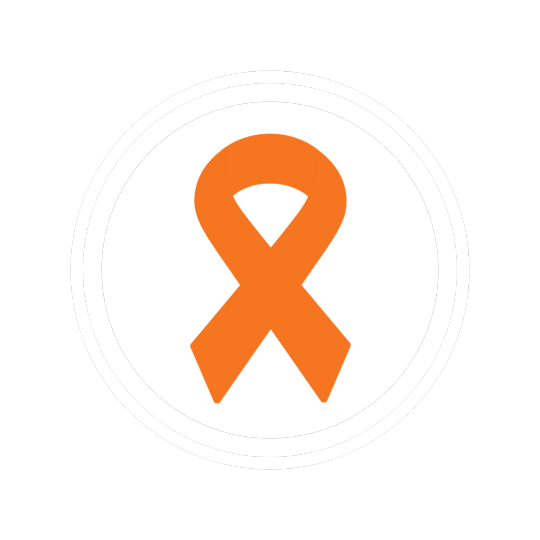

Leukemia and Lymphoma Awareness Flags!!
This flag was designed by us, as we currently have a family member with Leukemia and wish to bring awareness to this kind of cancer.
color meaning:
#FF2D34: Myeloma
#00DC0E: Non-Hodgkin Lymphoma
#FF8C2E: Leukemia
#D12DFF: Hodgkin Lymphoma
Below is information all about Leukemia and Lymphoma Cancers.
Leukemia and Lymphoma are both cancers that are not associated with a tumor. Lymphomas are cancers that affect the lymph system and start in cells called lymphocytes. Leukemia is a cancer of the early blood-forming tissues, including your bone marrow and lymph system.
There are many types of lymphoma. Some grow and spread slowly and some are more aggressive. There are two main types of Lymphoma:
1. Hodgkin Lymphoma is cancer that starts in the B lymphocytes (B cells) of the lymph system. Your lymph system helps you fight infection and control the fluids in your body.
2. Non-Hodgkin Lymphoma (NHL) is cancer that starts in the lymphocytes anywhere lymph tissue is found:
Lymph nodes
Spleen
Bone marrow
Thymus
Adenoids and tonsils, or
The digestive track.
Leukemia typically involves white blood cells, the cells that are your infection fighters. Leukemia can be divided into categories: fast growing (acute) and slow growing (chronic); and by which white blood cells are affected:
Acute lymphocytic leukemia (ALL)
Acute myelogenous leukemia (AML)
Chronic lymphocytic leukemia (CLL
Chronic myelogenous leukemia (CML)
A screening test is used to detect cancers in people who may be at higher risk for developing the disease. With leukemia and lymphoma, there are no early detection tests. The best way to find them is to be aware of the symptoms:
Swollen lymph nodes which can appear as a lump in the neck, armpit or groin;
Fever
Night sweats
Weight loss without trying, and
Fatigue.
Leukemia can have similar symptoms but also can include:
Easy bleeding or bruising;
Recurring nosebleeds; and
Bone pain or tenderness
Myeloma is cancer of the plasma cells. Plasma cells are white blood cells that produce disease- and infection-fighting antibodies in your body. Myeloma cells prevent the normal production of antibodies, leaving your body's immune system weakened and susceptible to infection. The multiplication of myeloma cells also interferes with the normal production and function of red and white blood cells. An abnormally high amount of these dysfunctional antibodies in the bloodstream can cause kidney damage. Additionally, the myeloma cells commonly produce substances that cause bone destruction, leading to bone pain and/or fractures.
Myeloma cells are produced in the bone marrow, the soft tissue inside your bones. Sometimes myeloma cells will travel through your blood stream and collect in other bones in your body. Because myeloma frequently occurs at many sites in the bone marrow, it is often referred to as multiple myeloma.
Signs and symptoms of myeloma include the following:
Hypercalcemia (excessive calcium in the blood)
Anemia (shortage or reduced function of red blood cells)
Renal damage (kidney failure)
Susceptibility to infection
Osteoporosis, bone pain, bone swelling, or fracture
High protein levels in the blood and/or urine
Weight loss
In 2022, more than 62,650 people are expected to be diagnosed with leukemia. In addition:
Leukemia accounts for 3.6% of all new cancer cases.
The overall 5-year survival rate for leukemia has more than quadrupled since 1960.
62.7% of leukemia patients survive 5 years or more.
The diagnosis of leukemia requires specific blood tests, including an examination of cells in the blood and marrow.
Treatment and prognosis depend on the type of blood cell affected and whether the leukemia is acute or chronic. Chemotherapy and blood and marrow transplant are often used to treat leukemia.
If you wish to read more about Leukemia and Lymphoma cancer, please visit this website!
#leukemia#lymphoma#blood cancer#leukemia and lymphoma society#leukemia awareness#lymphoma awareness#blood cancer awareness#pro endo#pro endogenic#endo friendly
3 notes
·
View notes
Text
18 September 202
Year 2 Day 13
Well, yesterday, we had only one class and the rest of the day, there was some celebration.
Class -Microbiology : Parasitic infection overview.
After class - 1) kana revision
2) Apoptosis, Changes in cell during cell death (Robbins)
Just so little, I'm the most unproductive right now. Down with a cough and cold and I feel weak after coming back from class. Plus, the weather's so hot, it drains all my energy.
Pharmacology: Drug development
Posting ( Medicine) : well, there was a chronic renal failure but I went for a check up and blood testing
Pathology : Acute inflammation
Practical ( Pharmacology) : Learnt how to give IV and Cannula
After class, I took anti allergic medicine and slept like a sloth. I don't feel like doing anything. Might just revise inflammation from pathoma for now.
#med student#med studyblr#med school#academia#grades#stem#medicine#stem academia#academic validation#studyblr#medblr
4 notes
·
View notes
Text
Renal Cysts: Deciphering the Mysteries of Cystic Kidney
The popularity of homeopathy has grown in alternative medicine due to the holistic treatment approach it offers to a variety of ailments. One area in which homeopathy has proven promising is in the treatment of kidney-related problems, which range from cysts and kidney infections to acute renal injuries and sometimes even kidney dysfunction.
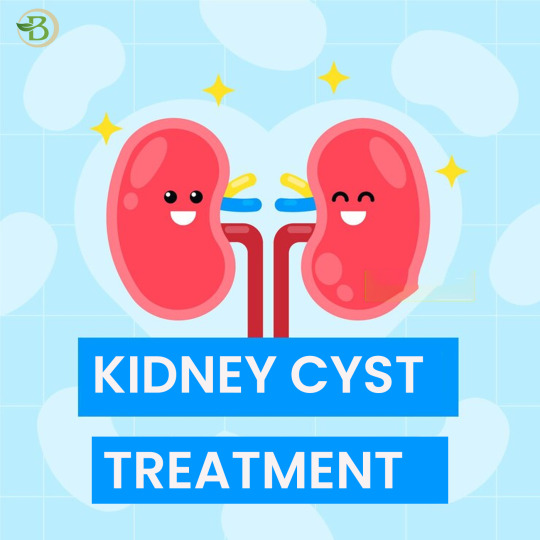
Homeopathic Remedies for Kidney Infection
Kidney problems, called pyelonephritis, are complex and disrupt your daily routine. Homeopathy has a range of treatments that can ease the symptoms and help support our body's own healing process.
Homeopathic Remedy for Kidney Infection is usually suggested for burning pain when urinating. Patients who can benefit from these remedies typically have the urge to urinate continuously but only pass small amounts every time.
If kidney inflammation is caused by swelling or stinging pain, it may be thought of as. This remedy is renowned for having anti-inflammatory qualities. It is also recommended to treat sharp, throbbing kidney pains which may spread into the bladder. They are believed to aid in helping eliminate kidney stones and ease the discomfort that comes with them.
Kidney Cyst Treatment through Homeopathy
The kidneys are prone to cysts. No matter how complex or straightforward, it causes discomfort and requires careful treatment. Homeopathic remedies seek to target and treat the root cause and improve kidney health. Kidney cyst treatments are usually suggested in cases of the sensation of pain or burning in the region of the kidneys. They can be helpful when kidney cysts are linked to anxiety and anxiety.
Furthermore, if kidney cysts are associated with a feeling of fullness and abdominal heaviness, it could be an indication of. It is believed that they affect the circulation and balance of fluids in the body. Patients who experience bloating and pain caused by kidney cysts, especially on the left side, can find relief through the use of natural homeopathic remedies. The remedy is believed to aid in the function of kidneys.
Homeopathy to treat acute kidney injury
An acute kidney injury (AKI) is an acute and frequently grave condition that requires immediate attention. While traditional medical treatment is vital, homeopathic remedies can be utilised as a complement to aid. If you are suffering from AKI that has a sudden appearance, anxiety, or anxiety, these remedies can be thought of as. It is believed that homeopathy kidney treatment can alleviate the symptoms that are similar to shocks commonly caused by acute kidney injuries. This treatment is usually suggested in the case of AKI, which causes burning and severe weakness. This remedy can be beneficial if there is a need for emotional and physical help during healing.
If AKI occurs, it is often accompanied by extreme sweating, weakness and a feeling of emptiness; some remedies can be considered as a possible natural cure.
Homeopathic Treatment for Kidney Failure
Kidney dysfunction is a situation where the kidneys cease to function effectively. Although traditional medical treatments like dialysis and transplantation are typically required, homeopathy can provide supportive therapy to improve the general health of people suffering from kidney failure.
Homeopathic remedies are frequently looked at by those with kidney problems that cause fatigue, weakness, or anxiety. The treatments are thought to impact the circulatory and respiratory systems. If you feel a sense of despair and hopelessness due to kidney failure, these solutions can be considered. They are frequently suggested for those suffering from mental and emotional stress.
They could be considered if you have a kidney problem and are prone to swelling and retention of fluid. It is believed to improve excellent circulation and ease symptoms of congestion.
Conclusion
While homeopathic remedies cannot be an alternative to conventional medical treatment, they can help support kidney health. It is crucial to talk with a trained professional homeopathic doctor or medical professional before adding these remedies to an overall acute kidney injury treatment plan, particularly for severe kidney problems. Like any other medical treatment, the individual response to homeopathic remedies may differ, and a holistic approach towards kidney disease that encompasses both alternative and conventional treatments could provide the most complete care. Be sure to communicate openly with your healthcare professionals to ensure a balanced and personalised treatment for kidney health.
#Homeopathic Remedy for Kidney Infection#kidney cyst treatment#homeopathic medicine for kidney failure#homeopathic medicine for kidney disease#homeopathic medicine for polycystic kidney#homeopathic medicine for renal cyst#Homeopathic treatment for kidney failure#Acute kidney injury treatment#homeopathy kidney treatment#Kidney Treatment by Homeopathy#Chronic Kidney Disease
0 notes
Text
Trying not to run screaming in the streets over the absolute horseshit conclusion printed on Tokitae’s official necropsy report.
Old age? OLD FUCKING AGE???? She was in her 50s! Her mom is still swimming free at a grand 98 years. J2 was 106 when she died. 50s is not “died of old age” territory for her pod. For a captive orca 50 is old age sure, but WHY IS THAT HMMM????? Why are captive orcas expected to live half as long as wild ones I wonder??? I am BITING.
And what was with all the “she’s in great health!” reports we got not two weeks before she died of- apparently- chronic and acute EVERYTHING? Heart disease, renal failure, pituitary mineralization, pneumonia… excuse me?????? Surely those weren’t all just conveniently missed in what I can only assume were the most useless health checks ever performed.
Anyways, I’m absolutely rabid in the worst way over this bullshit. Not even the decency to be honest about her after her death. Fuck the Miami Seaquarium, fuck the Dolphin Company, fuck Friends of Tokitae, and fuck every single facility that keeps cetaceans for entertainment.
#cipher vents#tw animal death#tw vent#holy shit#I don’t know why I expected some truth#and maybe closure#and gods forbid accountability#but silly me#hand over the clown nose#as if they’d ever let Toki have some fucking dignity#even in death#it’s Fine#I’m not even mad#im soooo fine#orca captivity
8 notes
·
View notes